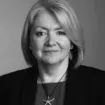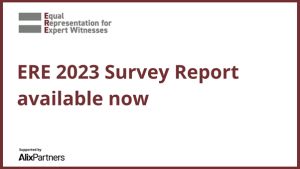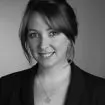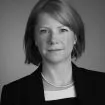Promoting gender diversity has become a key focus for the international arbitration community and beyond. Within the arbitration community, the launch of the Equal Representation in Arbitration (ERA) pledge in 2015 placed the focus on ensuring the fair representation of women as arbitrators. The ERA pledge seeks to increase, on an equal opportunity basis, the number of women appointed as arbitrators in order to achieve a fair representation as soon practically possible, with the ultimate goal of full parity.
The Equal Representation for Expert Witnesses (ERE) pledge was launched in May 2022 to drive a similar commitment to improve the visibility and representation of women as expert witnesses across the wider dispute resolution community, not just in arbitration. The goals of the ERE pledge are to:
- increase, on an equal opportunity basis, the number of women appearing as experts, in order to achieve proportional representation and eventually full parity;
- support the hiring, mentoring, and promotion of female experts;
- create a coalition of supporters and advocates in the world of dispute resolution;
- encourage women to aspire to be expert witnesses in their chosen professions; and
- widen the pool of expert witnesses available and help to enhance the reputation of expert witnesses.
This month, the Equal Representation for Expert Witnesses has published a report setting out the results of their survey looking at the critical challenges in increasing female expert witness representation and the potential solutions to drive change.
Key findings of the Survey
Over 620 lawyers and experts (male and female) responded to the survey from across 32 different countries.
The report makes challenging reading in terms of diversity. The survey highlights that, in 2022, women were appointed as the sole expert witness in just 10% of disputes worldwide. It also indicates that 64% of the lawyers responding to the survey had not seen a single female expert witness in action in 2022.
The report seeks to explain these findings by inviting survey respondents to identify why fewer women were being appointed as expert witnesses than men. The responses show a complex and connected sets of reasons, with the top four being:
- Lawyers' preference to use experts they know or have used previously;
- A lack of women reaching sufficiently senior levels in their own professions;
- A lack of experience for female experts in an expert witness role; and
- Lack of encouragement or promotion by their own colleagues.
The survey seeks to explore these reasons in more detail, recognising that a time lag will be playing its part in the results due to the preference for experienced experts and opportunities to testify having been historically skewed towards men. However, it offers a more positive outlook for the future, revealing a pipeline of aspiring expert witnesses under the age of 40 of both genders who are eager to be given opportunities as expert witnesses. The survey concludes by identifying a number of possible actions that can be taken across the dispute resolution community to increase the number of female expert witnesses most effectively, including the adoption of gender diverse expert witness shortlists, giving opportunities to women to co-testify with their male colleagues and hosting "meet the expert" events to showcase female talent to potential users.
Herbert Smith Freehills is a proud signatory of both the ERA and ERE pledges. Justin D'Agostino, CEO of HSF, is currently Co-Chair of the ERA Pledge, while senior associate, Louise Barber, and associate, Caitlin Eaton, are members of the Young Practitioners Subcommittee.
To find out more about the actions that you can take as a practitioner or a client to drive greater diversity, read our article in Issue 13 of our publication, Inside Arbitration.
The content of this article is intended to provide a general guide to the subject matter. Specialist advice should be sought about your specific circumstances.





